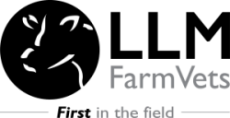Training Courses
We believe that working together to share knowledge is the most powerful method of increasing performance and efficiency on farm. Our passion for agriculture and knowledge exchange has led us to develop a wide range of agricultural training courses. These are open for all and specifically designed to help put knowledge into action.
Our training courses are a mix of practical, tutorial and online sessions and can be run at a location of your choice – we cover a wide area including Cheshire, Shropshire, Staffordshire, Derbyshire, Lancashire, Yorkshire and North Wales. Here is the range of courses we have available as well as some upcoming dates:
We do also offer a Herdsperson Certificate, which is run over a twelve-month period, with a topic generally taking a day (10:30 – 2:30). We want you to get the most out of the certificate, that’s why we have decided to run this over a longer period rather than condensing it into an unrealistic and unbeneficial time frame. To gain your herdsperson certificate, you must complete the ten courses (don’t fear, you will still get a certificate for each training course completed!) If you’re unable to make one of the sessions, we will book you onto the next one – you have as much time as you need to complete the certificate!
Please get in touch with Sarah Bourne / Vet to discuss how you go about booking onto the courses or for more information about our Herdsperson Certificate.
